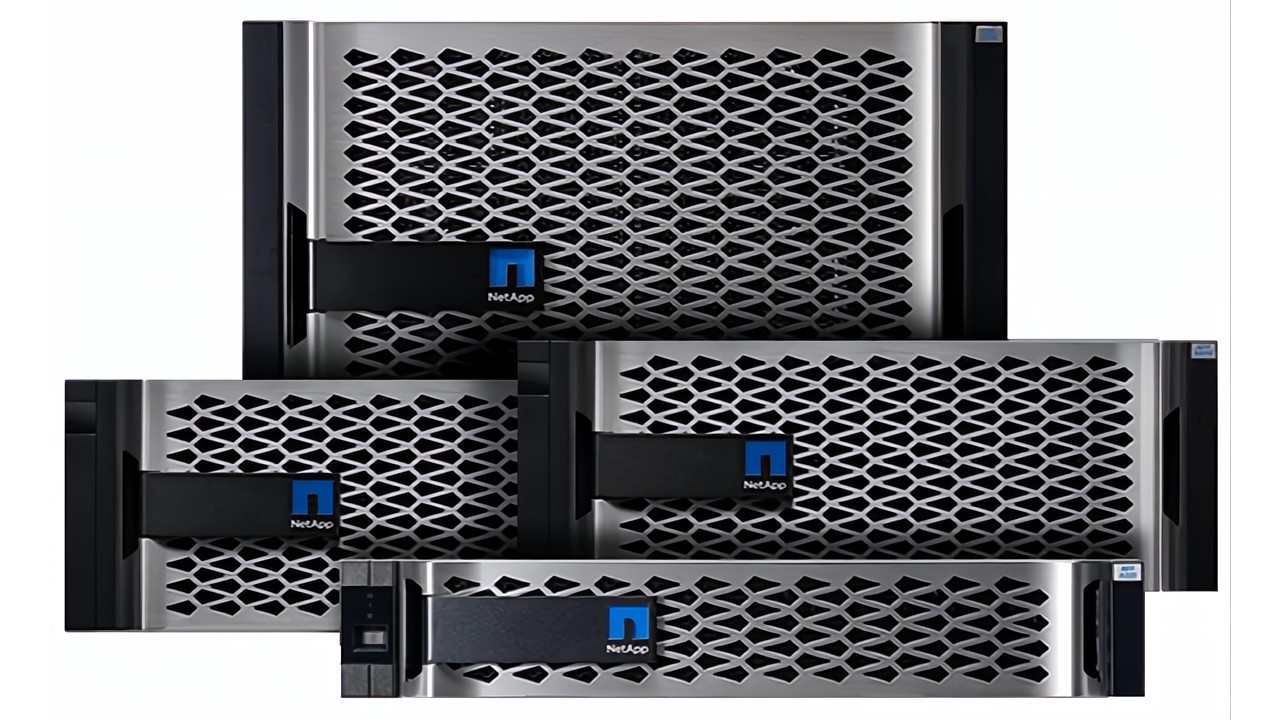NetApp Updates Enterprise Storage Lineup, Teams with Red HatNetApp Updates Enterprise Storage Lineup, Teams with Red Hat
NetApp has added data storage options in several price ranges. It has also partnered with Red Hat to help clients develop their own apps with new tools.

NetApp has unveiled several new updates to its portfolio of enterprise storage offerings that it says are right for businesses of any size.
The data infastructure provider also announced a new partnership with Red Hat to help customers and partners streamline and accelerate enterprise application development and management.
The first set of updates expands NetApp AFF A-Series and AFF C-Series systems. These systems will now come with mid-range, all-flash unified data storage available at a range of prices to accommodate the largest of businesses on down to small ones.
The AFF A-Series storage system models now include the AFF A20, A30 and A50 models. These new models have better performance than their predecessors, guaranteed storage efficiency and improved storage density.
A smaller company, NetApp says, could start with the AFF A20 with 15.35 TB capacity. The AFF A30 might best suit a somewhat larger company, scaling all the way to 1 PB in raw storage, on up to the A50, which is a best fit for larger enterprises. All of the models are powered by NetApp ONTAP, which uses data infrastructure to power its mission-relevant apps and run workloads accordingly.
New NetApp AFF C30, C60 and C80 systems offer 1.5PB of storage capacity in two-rack deployments. The company promises 95% floor space savings and 97% power savings for those modernizing their data centers from hybrid flash. There's also ransomware protection that NetApp claims is 99% accurate.
Moreover, there's an update to NetApp's StorageGRID, which aims to improve the density and performance of storage. The enhancements to StorageGRID will also help clients use intelligence data infrastructure to scale and manage their workloads, while the updated software will improve the scalability through bucket counts and metadata-only/data-only nodes.

NetApp's Sandeep Singh
“The unrelenting growth of data volumes and increasingly demanding workloads have put increasing pressure on IT teams of any size to provide simplicity at scale for all their workloads,” said Sandeep Singh, SVP and general manager of enterprise storage at NetApp. “Customers facing those challenges can rely on NetApp to deliver continuous innovation, illustrated by the release of the new more powerful, intelligent and secure NetApp AFF A-Series systems and the new scalable, efficien and secure NetApp AFF C-Series systems. Today, we are making our latest developments in intelligent data infrastructure more accessible for an even wider range of customers.”
NetApp Establishes Red Hat Partnership
The data infrastructure company also announced on Monday the expansion of its collaboration with the open source-focused Red Hat to provide its customers new solutions to accelerate enterprise application development and management in virtual solutions. NetApp has expanded its work with Red Hat to deliver enhancements to its intelligence data infrastructure to reduce costs and increase the flexibility of Red Hat's hybrid cloud application platform, OpenShift.

NetApp's Jonsi Stefansson
“In today’s ever-changing technology landscape, organizations need to embrace flexibility and agility so they can adapt and create a winning strategy,” said Jonsi Stefansson, SVP and CTO at NetApp. “Developing, deploying and managing modern enterprise applications requires high-performance and secure, persistent flash storage and advanced data management capabilities. NetApp intelligent data infrastructure with Red Hat OpenShift makes it simpler and faster for customers to adopt and manage their virtualized environments, as well as deliver performance, mobility and security for critical data managed on Red Hat OpenShift AI.”
The new Red Hat-provided solutions include a new container storage interface for Trident, new validated designs for Red Hat OpenShift Virtualization and OpenShift AI deployments on the FlexPod infrastructure solutions, and a new integration with NetApp Volumes that will allow customers to run their workloads using a first-party storage service in Google Cloud.
The company has made several updates to its product line in the last few months. In early October, NetApp expanded its collaboration with Google Cloud to provide data storage for distributed cloud infrastructure.
About the Author
You May Also Like


